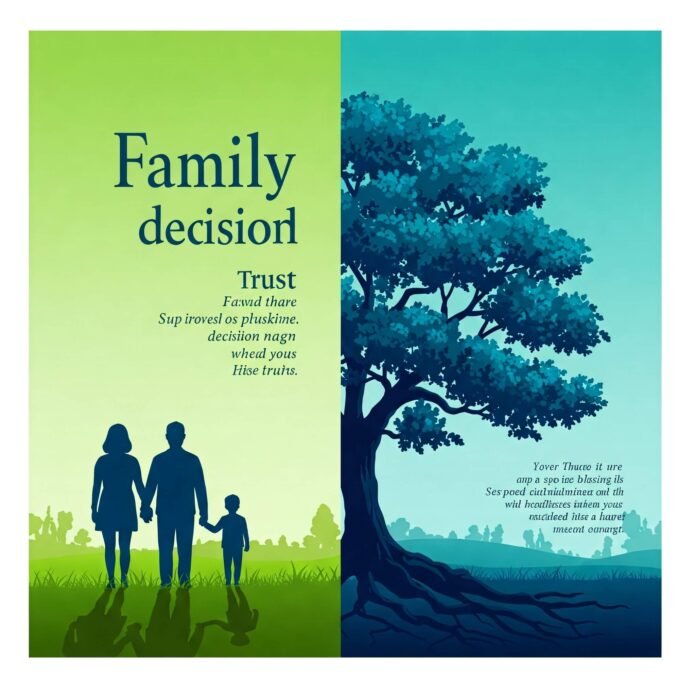When it comes to securing your family’s financial future, choosing between whole life insurance vs. term life can feel overwhelming. Both options offer unique benefits, but which one aligns with your goals? This guide breaks down the differences, pros, cons, and real-world scenarios to help you decide. Whether you’re a young professional, a parent, or planning for retirement, understanding these insurance types is key to making an informed choice.
What is Whole Life Insurance?
Whole life insurance is a type of permanent life insurance that provides coverage for your entire life, as long as premiums are paid. It combines a death benefit with a savings component, known as cash value, which grows over time at a guaranteed rate.
Key Features of Whole Life Insurance
- Lifelong Coverage: Protection lasts your entire life.
- Cash Value Growth: A portion of your premiums builds savings, which you can borrow against or withdraw.
- Fixed Premiums: Payments remain consistent, making budgeting easier.
- Guaranteed Death Benefit: Your beneficiaries receive a payout, no matter when you pass.
Example: Sarah, a 35-year-old mother, opts for whole life insurance to ensure her children’s future and build a cash value she can use for their college expenses. By age 50, she borrows from the policy’s cash value to cover tuition, all while maintaining coverage.

What is Term Life Insurance?
Term life insurance is a temporary life insurance policy that covers you for a specific period, typically 10, 20, or 30 years. It’s straightforward, affordable, and ideal for covering temporary needs, like a mortgage or child-rearing years.
Key Features of Term Life Insurance
- Affordable Premiums: Generally lower than whole life, especially for younger individuals.
- Fixed Term: Coverage lasts for a set period; no payout if you outlive the term.
- No Cash Value: Focuses solely on providing a death benefit.
- Flexible Terms: Choose a term that matches your financial obligations.
Example: Mark, a 40-year-old father, buys a 20-year term life policy to cover his mortgage and his kids’ education. The low premiums fit his budget, and he invests the savings elsewhere for retirement.

Whole Life Insurance vs. Term Life: A Side-by-Side Comparison
To make the decision easier, here’s a direct comparison of whole life insurance vs. term life based on key factors:
| Feature | Whole Life Insurance | Term Life Insurance |
|---|---|---|
| Coverage Duration | Lifetime | Fixed term (e.g., 10, 20, 30 years) |
| Premium Cost | Higher, fixed premiums | Lowerpremiums, may increase upon renewal |
| Cash Value | Builds savings over time | None |
| Death Benefit | Guaranteed, lifelong payout | Payout only if death occurs during term |
| Best For | Long-term wealth building, lifelong needs | Temporary needs, budget-conscious buyers |
Data Insight: According to the Life Insurance and Market Research Association (LIMRA), 59% of Americans own some form of life insurance, with term life being the most popular due to its affordability.
Pros and Cons of Whole Life Insurance
Pros
- Lifelong Protection: No need to worry about outliving your policy.
- Cash Value Growth: Acts as a savings vehicle for future needs.
- Predictable Costs: Fixed premiums simplify financial planning.
Cons
- Higher Costs: Premiums can be 5-10 times more than term life.
- Lower Returns: Cash value growth is slower compared to other investments.
- Complexity: Policies can be harder to understand.

Pros and Cons of Term Life Insurance
Pros
- Affordable: Ideal for young families or those on a tight budget.
- Simple: Easy to understand with no investment component.
- High Coverage: Get large death benefits for low premiums.
Cons
- Temporary Coverage: No payout if you outlive the term.
- Renewal Costs: Premiums can skyrocket if you renew after the term.
- No Savings: Lacks the cash value feature of whole life.
Which is Better for You? Whole Life Insurance vs. Term Life
Choosing between whole life insurance vs. term life depends on your financial goals, budget, and life stage. Here are some scenarios to guide your decision:
- Choose Whole Life If:
- You want lifelong coverage without worrying about renewals.
- You’re interested in building cash value for future expenses.
- You have a higher budget and prioritize long-term financial planning.
- Choose Term Life If:
- You need coverage for a specific period (e.g., until your kids are grown).
- You’re on a tight budget and want affordable premiums.
- You prefer to invest separately for wealth-building.
Actionable Takeaway: Assess your needs by asking: How long do I need coverage? Can I afford higher premiums for lifelong benefits? Consult a financial advisor to tailor your choice. For trusted advice, check out NerdWallet’s Life Insurance Guide.
Common Misconceptions About Whole Life Insurance vs. Term Life
- “Whole life is always too expensive.”
While premiums are higher, whole life can be cost-effective for those seeking lifelong coverage and savings. - “Term life is useless if you outlive it.”
Term life is designed for temporary needs, like paying off a mortgage, not lifelong protection. - “You can’t combine both.”
Many people use a mix of both policies to balance affordability and long-term security.
Final Thoughts on Whole Life Insurance vs. Term Life
Deciding between whole life insurance vs. term life is a personal choice that hinges on your financial priorities. Term life offers affordability and simplicity for temporary needs, while whole life provides lifelong security and a savings component. By weighing your budget, goals, and life stage, you can choose the policy that best protects your loved ones.
For more personalized guidance, explore resources like Policygenius or speak with a licensed insurance agent. Ready to take the next step? Start comparing quotes today to secure your family’s future!
outbound links:
- Investopedia – Whole Life Insurance – Explains whole life insurance in detail.
- Policygenius – Term Life Insurance – Compares term life policies.
- NerdWallet – Life Insurance Guide – Helps readers choose the right policy.
- IRS – Estate Tax Rules – Official guidelines on estate taxes.
- The Balance – Cash Value Life Insurance – Explains cash value growth.




